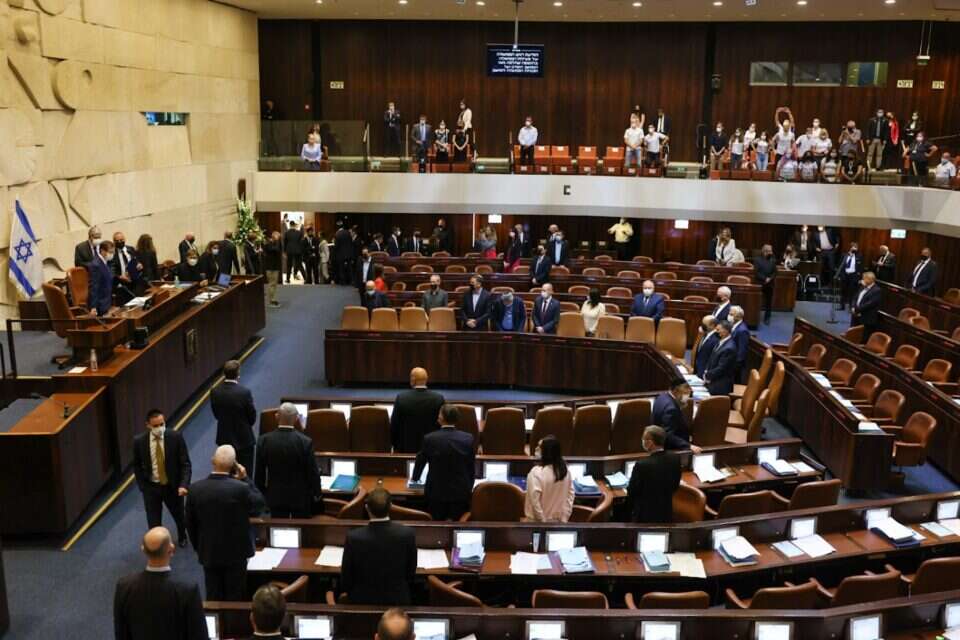The law limiting the term of office of a prime minister to eight years, which was passed this week in the first reading in the Knesset plenum, is causing a great deal of controversy.
The bill, which passed by a majority of 66 MKs, passed to the Constitution Committee for its preparation for a second and third reading.
Although a law restricting the term of office of a prime minister exists in such and other versions of democracies with a presidential regime, the most famous of which is the United States, it is foreign to democracies with a parliamentary regime, such as Israel.
A number of jurists who spoke with "Israel Today" explain that this is a law foreign to the Israeli system, which apparently does not fit into our book of laws.
Prof. Ofer Koenig, a lecturer at the Ashkelon Academic College, believes that the disadvantages of the move outweigh its advantages. "First, the restriction of tenure is not appropriate for the Israeli regime," explains Prof. Koenig. "Our system has enough tools to oust a prime minister, and the danger of a leader accumulating dangerous power is less high compared to democracies with presidential regimes, like the United States. Second, according to the bill, as soon as a prime minister reaches eight years in office - his term will end automatically and this means that the government will also resign. "Because our elections are not held on a fixed date, this may actually create instability - to end a government term in the middle without any real justification for it."
He said, "Finally, as long as basic laws are not reserved for changes by a qualified majority (for example of 80 MKs) - this restriction will have no real meaning.
"This is because a popular prime minister, who also has the support of his coalition and party, will not have a problem raising 61 fingers to lift the restriction and continue in office beyond the eight-year term."
"Israeli invention"
Dr. Assaf Shapira, from the Israel Democracy Institute, known for his pluralistic views, also expressed opposition to the move: "This will be a unique Israeli invention.
This is something that does not essentially fit a regime like in Israel.
Such a move would undermine governance and lead to the reopening of all coalition agreements. "Dr. Shapira explains that he was once more determined in his opposition, but the" Netanyahu case "caused him to moderate the reservations a bit:" The prime minister's institution has strengthened significantly in recent years. We have reservations that Netanyahu's long tenure is not unusual in other parliamentary governments, such as the Angela Merkel case. "Knesset members to change it and there is a good chance that this will also be eliminated and increase the damage, in light of the recognition that politicians can change the rules of the game whenever it suits them."
"Reducing freedom of choice"
Former Justice Minister Haim Ramon also expressed strong reservations: "Anything that is not practiced anywhere in the democratic world is bad because it usually restricts the freedom of choice of the citizen or elected official. Parliamentarians The one who elects the prime minister is not the people - but the Knesset, and it is impossible that if a majority is obtained in the Knesset this will not happen. "From the current situation. This is a kind of incorrect drawing from Netanyahu's long period. These are incorrect laws of Bibi's trauma."
Opposition leader MK Benjamin Netanyahu in the Knesset plenum, Photo: Oren Ben Hakon
On the other hand, Professor Susie Navot from the College of Management actually welcomes the move.
"In recent years, we have witnessed a trend whereby some parliamentary regimes 'behave' like presidential regimes: strengthening of prime ministers, strengthening of government at the expense of parliament, personalization of leaders and political difficulties in replacing prime ministers," says Prof. Navot.
"This has led to the emergence of strong prime ministers - no less than presidents - with them also an increase in populist phenomena and the erosion of democratic institutions. Justice Minister Gideon Saar's proposal to apply a characteristic of a presidential regime to Israel "The proposal is also correct in that it limits years of tenure rather than terms, since the term of the Knesset can be, as we have already seen, particularly short."














